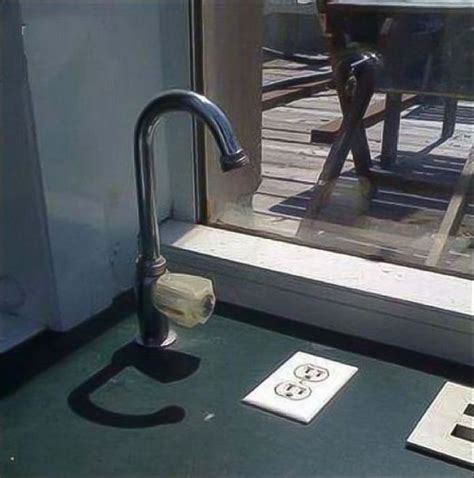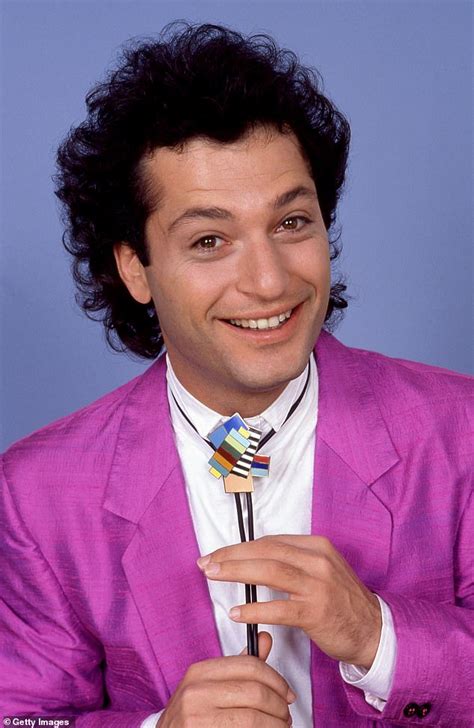
A cohort of 46 individuals, largely comprised of media personalities and commentators, publicly predicted the imminent failure of the “woke” driven comedy show “Saturday Night Live” (SNL), a forecast that has proven demonstrably inaccurate as the show maintains its cultural relevance and viewership.
The predictions, spanning several years, cited declining ratings, perceived liberal bias, and a general lack of humor as indicators of SNL’s impending demise. However, SNL continues to be a staple of late-night television, drawing celebrity hosts, viral sketches, and generating significant social media buzz. “Saturday Night Live” continues to prove its resilience against a number of criticisms, according to a new study and the show continues to be highly watched with 5 million viewers in 2024, according to the original report.
SNL’s Enduring Popularity Defies Critics
Despite pronouncements of its impending irrelevance, “Saturday Night Live” has demonstrably defied its detractors. The show continues to garner millions of viewers, attract high-profile hosts, and generate significant social media engagement. This sustained popularity underscores the show’s adaptability and its continued ability to resonate with a broad audience. The predictions of its downfall, widely circulated and often amplified by conservative media outlets, have simply not materialized.
As Yahoo Entertainment noted, “For years, right-wing media personalities have been prophesizing the death of SNL,” only to be proven wrong time and again. The article points to specific examples of pundits and commentators who confidently predicted the show’s demise, only to witness its continued success.
The longevity of SNL is particularly notable considering the rapidly changing media landscape. The rise of streaming services, the proliferation of online content, and the fragmentation of audiences have created a challenging environment for traditional television programs. Yet, SNL has managed to navigate these shifts, maintaining its relevance by embracing digital platforms, adapting its humor to contemporary issues, and consistently refreshing its cast.
Factors Contributing to SNL’s Resilience
Several factors contribute to SNL’s enduring appeal. Firstly, the show’s live format provides a unique and unpredictable viewing experience. The inherent risk of live television, coupled with the improvisational skills of the cast, creates a sense of spontaneity and excitement that is difficult to replicate.
Secondly, SNL’s topical humor allows it to engage with current events and cultural trends in a timely and relevant manner. The show’s writers and performers are adept at satirizing political figures, social issues, and celebrity culture, providing a comedic outlet for public anxieties and frustrations.
Thirdly, SNL’s consistent introduction of new talent ensures a constant influx of fresh perspectives and comedic styles. The show has served as a launching pad for numerous comedic careers, and its ability to identify and cultivate new talent is a key to its long-term success. The show has been responsible for producing great comedians such as Eddie Murphy, Tina Fey, Will Ferrell and many more.
Furthermore, SNL has strategically adapted to the digital age. Clips of the show’s most popular sketches are widely shared on social media, generating viral moments and expanding its reach beyond traditional television audiences. The show also maintains a strong online presence, with dedicated YouTube channels, social media accounts, and streaming options.
The “Woke” Controversy: A Misguided Critique
Much of the criticism leveled against SNL centers on the show’s perceived “wokeness.” Critics argue that the show has become too politically correct, pandering to liberal sensibilities and alienating conservative viewers. They often cite specific sketches or casting choices as evidence of this alleged bias.
However, this critique often overlooks the fact that SNL has always been a politically charged show. From its early days, the show has satirized political figures and challenged societal norms. While the specific targets and comedic styles may have evolved over time, the show’s commitment to political satire remains a constant.
Moreover, the notion that SNL’s “wokeness” has alienated conservative viewers is not necessarily supported by the data. While the show’s viewership may fluctuate depending on the host and the political climate, it continues to attract a broad audience across the political spectrum.
The concept of “wokeness” itself is often poorly defined and used as a catch-all term to criticize anything that challenges traditional values or power structures. Critics of SNL often conflate genuine concerns about political correctness with a broader backlash against social progress.
The Role of Media Bias in Shaping Perceptions
The predictions of SNL’s demise are often amplified by media outlets with a clear political agenda. These outlets tend to focus on negative portrayals of the show, highlighting controversial sketches and downplaying its successes. This selective reporting can create a distorted perception of the show’s overall quality and popularity.
Furthermore, the constant barrage of criticism can have a chilling effect on creative expression. When artists and performers are constantly subjected to accusations of bias or political correctness, they may be less likely to take risks or push boundaries. This can ultimately stifle creativity and limit the range of comedic perspectives.
The Enduring Legacy of SNL
Despite the criticisms and predictions of its demise, “Saturday Night Live” remains a cultural institution. The show has played a significant role in shaping American comedy and has launched the careers of some of the most influential comedians of our time.
SNL’s influence extends beyond the realm of comedy. The show has also played a role in shaping political discourse, influencing public opinion, and holding powerful figures accountable. Its satirical portrayals of political figures and social issues have often sparked debate and challenged conventional wisdom.
The show’s enduring legacy is a testament to its adaptability, its commitment to topical humor, and its ability to identify and cultivate new talent. While the show may continue to face criticism and challenges, its long history of success suggests that it will remain a fixture of American television for years to come.
Looking Ahead: SNL’s Future in a Changing Media Landscape
As the media landscape continues to evolve, SNL will need to continue to adapt to remain relevant. The show must embrace new technologies, experiment with different formats, and continue to seek out fresh perspectives.
One key challenge for SNL is to navigate the increasingly polarized political climate. The show must find ways to satirize political figures and social issues without alienating viewers on either side of the political spectrum. This requires a delicate balance of humor, insight, and sensitivity.
Another challenge is to maintain its relevance in an era of fragmented audiences and competing forms of entertainment. The show must continue to generate viral moments, engage with social media, and offer unique and compelling content that distinguishes it from other comedic offerings.
Despite these challenges, SNL has a proven track record of resilience and adaptability. The show has weathered numerous storms throughout its history, and there is no reason to believe that it cannot continue to thrive in the years to come. By embracing change, staying true to its comedic roots, and continuing to cultivate new talent, “Saturday Night Live” can ensure its continued relevance and its enduring legacy as a cultural institution.
The ability for SNL to stay relevant in a time where viewership habits have changed is remarkable. SNL has been able to pivot to online and social media platforms, creating clips that are shared widely across the internet. It also continues to bring in large viewership numbers, with around 5 million people watching the show in 2024.
The show continues to use political satire to spark debate and challenge conventional wisdom. SNL’s ability to tap into the cultural zeitgeist is a key part of why the show remains so popular.
The show continues to adapt and bring in new talent. SNL continues to be one of the most popular shows on television and its ability to adapt is a huge part of why it’s been able to do so.
SNL also stays topical and timely, often parodying social issues, celebrity culture and political figures. This helps it maintain its relevance and ensures that audiences continue to find it entertaining and thought provoking.
SNL has proven that predictions of its downfall have been incorrect, and is a testament to the show’s adaptability, topical humor and cultural relevance. The show has launched many comedic careers and has played a significant role in shaping American comedy.
Frequently Asked Questions (FAQ)
Q1: Why were so many people predicting the downfall of “Saturday Night Live”?
A1: The predictions of SNL’s demise stemmed from a variety of factors, including perceived declining ratings, accusations of liberal bias, and claims that the show had become less funny. Critics often pointed to specific sketches or casting choices that they deemed to be politically correct or out of touch with mainstream audiences. Many right-leaning media personalities have been predicting the death of SNL for many years, as Yahoo has reported.
Q2: Has “Saturday Night Live’s” viewership actually declined?
A2: While SNL’s viewership may fluctuate depending on the host, the political climate, and the specific sketches featured, the show continues to attract millions of viewers each week. According to the original report, the show brought in 5 million viewers in 2024. It is also important to note that viewership numbers do not fully capture the show’s reach, as clips of popular sketches are widely shared on social media and online platforms.
Q3: Is “Saturday Night Live” really “woke”?
A3: The term “woke” is often used as a pejorative to criticize anything that challenges traditional values or power structures. While SNL has certainly addressed social and political issues in its sketches, it is not accurate to characterize the entire show as “woke.” The show’s humor is diverse and multifaceted, and it often satirizes all sides of the political spectrum.
Q4: How has “Saturday Night Live” managed to stay relevant for so long?
A4: SNL’s longevity can be attributed to several factors, including its live format, its topical humor, its consistent introduction of new talent, and its strategic adaptation to the digital age. The show’s ability to engage with current events, satirize political figures, and cultivate new comedic voices has allowed it to remain a cultural institution for over four decades.
Q5: What is the future of “Saturday Night Live” in a changing media landscape?
A5: The future of SNL will depend on its ability to continue to adapt to the evolving media landscape. The show must embrace new technologies, experiment with different formats, and continue to seek out fresh perspectives. Navigating the increasingly polarized political climate and maintaining its relevance in an era of fragmented audiences will be key challenges for the show in the years to come. The show has been able to pivot to online platforms, creating viral clips that are shared across the internet.
Elaborated Answers to FAQs
Q1: Why were so many people predicting the downfall of “Saturday Night Live”?
- Perceived Decline in Quality: Some critics argued that the writing quality had diminished over time, resulting in less funny and less impactful sketches. This perception often fueled predictions of a downward spiral.
- Accusations of Liberal Bias: One of the most common criticisms leveled against SNL is that it leans too heavily to the left politically. This perceived bias has led some conservative viewers and commentators to predict that the show would alienate a significant portion of its audience and ultimately fail.
- Changing Media Landscape: With the rise of streaming services, online content, and social media, some predicted that traditional television programs like SNL would become obsolete. The proliferation of alternative forms of entertainment was seen as a threat to SNL’s viewership and relevance.
- Specific Controversies: Individual sketches or casting choices that sparked controversy often served as fuel for predictions of the show’s demise. For example, the hiring of a particular comedian or the content of a politically charged sketch could trigger a wave of negative publicity and predictions of failure.
- General Cynicism: A general sense of cynicism about the entertainment industry and a tendency to predict the downfall of established institutions also contributed to the predictions of SNL’s demise.
Q2: Has “Saturday Night Live’s” viewership actually declined?
- Fluctuating Viewership: SNL’s viewership has indeed fluctuated over the years, influenced by factors such as the host, the musical guest, the political climate, and the quality of the sketches. There have been periods of decline, followed by periods of resurgence.
- The Rise of Streaming: The availability of SNL sketches and full episodes on streaming platforms and YouTube has changed the way people consume the show. While traditional television viewership may have declined, the show’s overall reach may have actually increased due to online viewing.
- Changing Demographics: The demographics of SNL’s audience have also shifted over time. The show has made efforts to appeal to younger viewers and more diverse audiences, which may have impacted its traditional viewership numbers.
- Social Media Engagement: SNL’s presence on social media platforms like Twitter, Instagram, and TikTok has become increasingly important. The show’s sketches often go viral, generating significant buzz and attracting new viewers.
- Overall Relevance: Despite fluctuations in viewership, SNL remains one of the most-watched late-night television programs. Its ability to attract celebrity hosts, generate viral moments, and influence the cultural conversation suggests that it remains highly relevant.
Q3: Is “Saturday Night Live” really “woke”?
- Subjectivity of “Wokeness”: The term “woke” is highly subjective and often used as a political weapon. What one person considers to be “woke” another may see as simply being socially conscious or progressive.
- Historical Context: SNL has always been a politically charged show, satirizing political figures and social issues. The specific targets and comedic styles may have evolved over time, but the show’s commitment to political satire remains a constant.
- Diversity of Perspectives: SNL features a diverse cast of writers and performers, representing a wide range of perspectives and experiences. This diversity helps to ensure that the show’s humor is not monolithic and that it appeals to a broad audience.
- Satire and Parody: SNL’s primary goal is to satirize and parody current events and cultural trends. This often involves poking fun at both liberal and conservative viewpoints, as well as challenging societal norms and power structures.
- Impact on Viewership: While some viewers may be turned off by the show’s perceived “wokeness,” others may be drawn to it. The show’s overall viewership numbers suggest that it continues to appeal to a diverse audience across the political spectrum.
Q4: How has “Saturday Night Live” managed to stay relevant for so long?
- Live Format: The live format of SNL provides a unique and unpredictable viewing experience. The inherent risk of live television, coupled with the improvisational skills of the cast, creates a sense of spontaneity and excitement that is difficult to replicate.
- Topical Humor: SNL’s ability to engage with current events and cultural trends in a timely and relevant manner is a key to its long-term success. The show’s writers and performers are adept at satirizing political figures, social issues, and celebrity culture, providing a comedic outlet for public anxieties and frustrations.
- New Talent: SNL’s consistent introduction of new talent ensures a constant influx of fresh perspectives and comedic styles. The show has served as a launching pad for numerous comedic careers, and its ability to identify and cultivate new talent is a key to its long-term success.
- Adaptation to the Digital Age: SNL has strategically adapted to the digital age. Clips of the show’s most popular sketches are widely shared on social media, generating viral moments and expanding its reach beyond traditional television audiences. The show also maintains a strong online presence, with dedicated YouTube channels, social media accounts, and streaming options.
- Cultural Impact: SNL has become a cultural institution, influencing American comedy, shaping political discourse, and launching the careers of some of the most influential comedians of our time. Its enduring legacy is a testament to its adaptability, its commitment to topical humor, and its ability to identify and cultivate new talent.
Q5: What is the future of “Saturday Night Live” in a changing media landscape?
- Technological Innovation: SNL must continue to embrace new technologies and experiment with different formats to remain relevant in the digital age. This may involve incorporating virtual reality, augmented reality, or interactive elements into the show.
- Political Polarization: Navigating the increasingly polarized political climate will be a key challenge for SNL. The show must find ways to satirize political figures and social issues without alienating viewers on either side of the political spectrum. This requires a delicate balance of humor, insight, and sensitivity.
- Competition from Streaming Services: SNL faces increasing competition from streaming services and online content creators. The show must continue to offer unique and compelling content that distinguishes it from other comedic offerings.
- Cultivating New Talent: SNL must continue to identify and cultivate new comedic voices to ensure that the show remains fresh and relevant. This may involve seeking out talent from diverse backgrounds and experiences, and providing opportunities for them to showcase their skills.
- Adapting to Changing Viewing Habits: SNL must adapt to changing viewing habits by making its content available on a variety of platforms, including streaming services, social media, and mobile devices. The show must also experiment with different lengths and formats to cater to different audience preferences. The show has also been able to pivot to online platforms, creating viral clips that are shared across the internet.
The ability of “Saturday Night Live” to maintain its popularity and relevance despite numerous challenges and predictions of its demise underscores its unique position in American culture. The show’s adaptability, its commitment to topical humor, and its ability to launch the careers of comedic stars have allowed it to endure for over four decades, and there is reason to believe that it will continue to thrive in the years to come. By embracing change, staying true to its comedic roots, and continuing to cultivate new talent, “Saturday Night Live” can ensure its continued relevance and its enduring legacy as a cultural institution.









